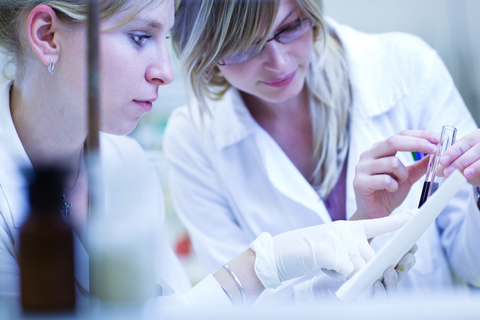Accelerating drug discovery in kidney diseases

A new consortium to accelerate the discovery of novel drugs to treat kidney diseases was announced on November 6th. The NEPLEX (nephron on a chip with cellular and extracellular matrix complexity) consortium, comprising leading academic institutions including the Universities of Bristol and Cambridge, and Evotec AG, will combine key technologies to develop and build a novel drug discovery device.
The University of Bristol reports that the consortium’s aim is to develop a functional nephron, which is the basic structural and functional unit of the kidney, on a chip device that reflects both the filtration area as well as the resorption area of a human kidney. The functional nephrons will be based on fully characterised human cell lines and iPSC-derived human cells. It will merge state of the art microfluidics technology established at the University of Cambridge with world class expertise in iPSC technology and kidney disease from the University of Bristol, the Mario Negri Institute in Bergamo and from Evotec AG.
Professor Moin Saleem and his group from the University of Bristol will contribute human kidney cell lines focusing on the resorption unit, Dr Yan Yan Shery Huang and her lab from the University of Cambridge will develop the glomerular part of the chip, Dr Christodoulos Xinaris and his colleagues from the Mario Negri Institute will provide human iPSC lines and expertise. Evotec will add its state of the art iPSC and kidney disease platforms. The device will allow testing of drug candidates in a fully human nephron already in the pre-clinic and thereby improve and accelerate drug discovery in the field of kidney diseases.
Dr Cord Dohrmann, Chief Scientific Officer of Evotec, said “We are very pleased to have teamed up with three leading academic institutions in such exciting area of medicine. Developing fully human and functional organotypic systems for pre-clinical drug discovery with the possibility to include human genetics will be a major step towards personalised and more disease-relevant drug candidates.”
Moin Saleem, who is based at the Bristol Medical School: Tranlastional Health Sciences, said “Bristol Renal is delighted to forge this collaborative project with Evotec, building on a productive academic-industry collaboration over the past five years, utilising our unique resources, and forming part of an innovative working relationship between clinicians, academia and industry which will significantly accelerate our route to discovery and translation.”








